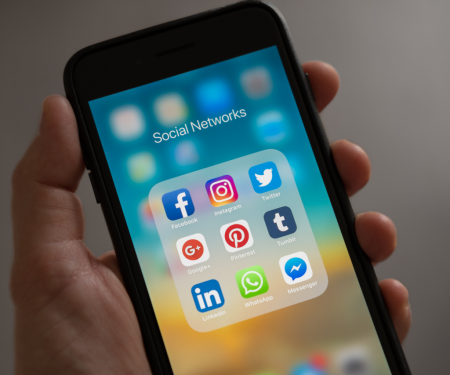The Digital Oligarchy

By Manahal Zameer
As of December 2020, 93 million internet users have been reported in Pakistan. For a major chunk of these internet users, social media is the primary channel of expression. More so, during the pandemic, people have started spending considerably more time on social media platforms to engage on multiple levels. It is through this engagement that the general public has been able to develop a relationship with the state as well.
Facebook and twitter are the two major platforms largely used by the public as the primary means of public engagement. For a democratic governance these platforms are necessary to create a sense of citizen participation in a democratic setting. Free speech is one element which is increasingly being promoted through the use of social media especially for underrepresented groups in the society. The opposite of free speech, which is censorship acts as a threat to the democracy.
This leads us to the question that whether social media companies should regulate the free speech and indulge in censorship and blocking people from the digital space. Sometimes such regulation is state backed, that is, either the manipulation is done by state organizations known as cyber troops or the private companies are used as tools to manipulate the public’s behavior. There has been a recent debate about the power of the social media to regulate content after the Trump’s Ban from Twitter resulting from the attack on Capitol Hill. According to the news, this ban was an attempt to prevent the incitement of further violence in the country. However, it has raised some pertinent concerns over the regulatory power of social media. As for Angela Merkel, the ban was problematic since free speech is a fundamental right and the social media companies do not have any right to regulate it. Borris Johnson also said that there is a real debate revolving around the status of the big internet companies and the way they are perceived either as platforms or as publishers.
One side of the debate also points out that the social media companies do have the power to decide between right and wrong since they are the ones to develop the newsfeeds and man-made algorithms to display content. The algorithms involved need to be monitored to filter the fake news or any sort of misinformation being promoted.
However, when social media companies try to leverage their power over political issues, it becomes problematic. It has been argued that regulating free speech should be the role of law makers and not the private tech companies.
The private big tech companies -such as twitter in the case of Trump’s ban- argue that they have been facing immense pressure from the law makers and the civil rights advocates to do more to regulate content on their platforms. Moreover, these companies have been avoiding strict regulatory policies to be content neutral but incidents such as the Capitol Hill attack which continue to incite violence and lead to increased disruption are the reason that these companies have to resort to being overly powerful. Such authoritative action on part of these big tech companies questions their role in comparison to the traditional publishers who reserved the right to control what is being published.
The spread of misinformation during the covid-19 pandemic and the aftermath of the US election have pushed the social media firms to limit the misuse of their platforms by removing accounts which are engaged in disseminating false information backed by state organizations.
Upon reconciling the multiple views on the digital oligarchy in light of the Trump’s twitter ban, it has really clarified where the power resides in the digital society. Through a policy lens, this is a transnational problem which cannot be challenged just through laws, however, state and citizens should be powerful enough to challenge these private companies in the court.
Lastly, not only the suspension of a political figure from a social media site raises questions about the power of the social media, but it also sets a dangerous precedent as well since French journalists term it as a ‘collapse of the monument in information space’.



